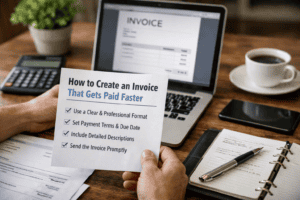With so many financial products and regulations in the UK, managing your finances may be a challenging task. But, with the correct tools and techniques, you can take charge of your finances and achieve financial stability.

In this post, we’ll look at the key aspects of managing your money, such as setting a budget, making investments, and making growth plans. We will also provide tips and strategies to help you succeed in each of these areas.
Budgeting
Establishing a budget is the first step in managing your money. A budget is a plan for deciding how much money you will spend over a certain period of time, typically a month. By creating a personal budget you can track your expenses, identify areas to cut costs, and you can prepare for future expenses.
Tracking your earnings and expenses is the first step in making a budget. This can be done using a spreadsheet, a budgeting tool or app, or just a pen and paper. Once you have a clear picture of your earnings and expenses, you can start to pinpoint areas where you can reduce your spending.
One of the main advantages of budgeting is the ability to track where your money is going. The amount of money that many people spend on luxuries and no essential items such as eating out or shopping for clothing may surprise them. By tracking your expenses and prioritising your spending, you may begin to start making more educated decisions about how to use your money.
Here are some tips for building an effective budget in the UK:
Be realistic: When making a personal budget, consider how much money you earn and the cost of living. It’s important to set goals that are realistic if you want to avoid any frustration or disappointment.
Prioritise your spending: Be sure to prioritise spending your money on the things that are most important to you. This could include rent or mortgage payments, utility bills, groceries, and other necessary expenses.
Be flexible: As your income and expenses change over time, your budget may need to change as well. Be flexible with your budget and make changes as needed.
Another benefit of budgeting is that it can also help you to save money. By recognising areas where you can reduce your spending, you can free up extra money for other goals, like paying off a debt or investing.
There are also a number of tools and resources at your disposal that you can use to help you create and keep track of your budget. Money Dashboard, Emma, and Yolt are all well-known budgeting apps in the UK. You can use these apps to keep an eye on your expenditures, set financial goals, and even automate your savings.
Investing
Another important part of managing your money is investing. Investing can assist you in achieving your long-term financial goals and help you grow your wealth over time. There are many different types of investments, including, stocks, bonds, mutual funds and property.
Before putting money into an investment, it’s important to do your homework and understand the risks and possible rewards of each investment option. In the UK, different types of investments are subject to different regulations and tax laws, so it’s important to get professional advice before making any investment decisions.
One of the main benefits of investing is that it allows your money to grow over time. The reason for this is the power of compounding, which means that your money generates interest or dividends, which are then re-invested to earn even more interest or dividends. Which over time, can help your investment portfolio significantly grow.
Some tips for successful investing in the UK include:
Diversify your investments: Don’t place all of your money in one investment. Instead, to reduce risk, spread your investments across different types of assets and industries.
Start early: If you start investing early, your money will have more time to grow. The power of compounding means that even small investments made early in life can significantly add up over time.
Consider your tax situation: There may be different tax consequences for different investments here in the UK. For example, putting money into an Individual Savings Account (ISA) can provide tax-free growth and income.
Keep fees in mind: It’s important to be mindful of fees when investing. These can include management fees, transaction fees, and other costs that come with investing. These fees can add up over time and cut into your returns.
There are numerous ways to invest your money in the UK, depending on what you want to achieve and what risks you are willing to take. Some popular options to invest in the UK are:
Stocks: Stocks represent pieces of a company that you can buy and sell on stock exchanges. Stocks can be a riskier way to invest, but they can also offer the potential to increase your returns.
Bonds: Bonds are a type of debt security that represent a loan to a company or government. Bonds are usually thought of as a safer way to invest, but they offer lower returns.
Funds: Funds are a form of investment that pool the money of multiple investors and use it to buy a portfolio of stocks, bonds, and other securities.
Property: If you want your money to grow over the long term, property can be a good investment. This can mean buying rental properties, putting money into real estate investment trusts (REITs), or flipping houses.
Before investing funds into any of these options, it is essential you do your research and learn about the risks and possible rewards of each investment process. You might also want to consider seeking financial advice and talking to a financial planner or advisor who has knowledge of the regulations and tax laws of the UK, to help you make smart investment decisions.
Planning for Growth
Finally, one important part of managing your money in the UK is to plan for growth. Having a long-term plan can help you reach your financial goals, whether you’re saving for a deposit on a house or planning for your retirement.
To formulate a plan for growth, you should start by setting clear measurable goals. This could mean that each month you set aside a certain amount of money, settling debts, or investing in a certain asset class.
Once you know what your goals are, make a plan for how to achieve them. This might involve creating a budget, buying the right assets, and keeping track of your progress over time.
Some tips to keep in mind for successful planning for growth in the UK are:
Set realistic goals: When setting financial goals, it’s important to be realistic and set goals that are possible for you to reach given your current financial situation. Setting unrealistic goals can lead to frustration and disappointment, and may ultimately hinder your progress towards achieving financial security.
Re-evaluate your plan often: Your financial situation could very well change over time, so it’s essential to re-evaluate your plan often and make changes as needed.
Consult a professional: If you’re not sure how to achieve your financial goals, you might want to talk to a financial planner or advisor who is familiar with the UK’s regulations and tax laws.
When making plans for growth in the UK, you may want to consider a number of different financial goals. Some common instances include:
Saving for retirement: Setting up a pension plan or an individual retirement account (IRA) and investing in a diversified portfolio of stocks and bonds are two ways to save for retirement.
Saving for a deposit on a house: If you want to save for a deposit on a house, you want to create a savings plan and put your money into bonds and cash ISAs.
Paying off debt: This may involve prioritising and creating a debt repayment plan to pay off any existing debt.
By creating a plan for growth and sticking to it, you can reach your long-term financial goals and have a more secure financial future.
In conclusion, managing your money can be challenging, but it’s also an important part of being financially stable. You can take charge of your money and reach your long-term financial goals by creating a budget, investing wisely, and planning for growth.
Remember it’s important to educate yourself on financial matters, consult with experts for guidance, and remain disciplined in making sound financial decisions. With the right tools and strategies, you can be financially secure and enjoy the benefits of long-term financial success.
So, start your journey today by creating a budget, opening an investment account, or by talking to a financial advisor, your future self will be grateful!











